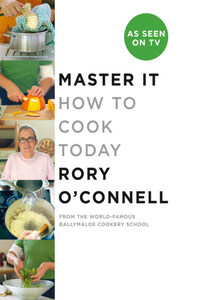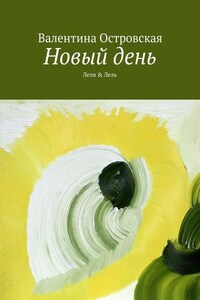Master it
How to cook today
Rory O’Connell
First published in Great Britain by Fourth Estate
a division of HarperCollinsPublishers
1 London Bridge Street
London SE1 9GF
www.4thestate.co.uk
Text copyright © Rory O’Connell 2013
Photography by Laura Hynd
Designed by We Made This
The right of Rory O’Connell to be identified as the author of this work has been asserted by him in accordance with the Copyright, Designs and Patents Act 1988
A catalogue record for this book is available from the British Library
Excerpt from The Oxford Companion to Food by Alan Davidson (2006) quoted by kind permission of Oxford University Press.
ISBN 978-0-00-744728-2
All rights reserved under International and Pan-American Copyright Conventions. By payment of the required fees, you have been granted the non-exclusive, non-transferable right to access and read the text of this ebook on-screen. No part of this text may be reproduced, transmitted, downloaded, decompiled, reverse engineered, or stored in or introduced into any information storage and retrieval system, in any form or by any means, whether electronic or mechanical, now known or hereinafter invented, without the express written permission of HarperCollins. The author asserts the moral right to be identified as the author of this work.
This is a work of fiction. Names, characters, places, and incidents either are the products of the author’s imagination or are used fictitiously. Any resemblance to actual events, locales, organizations, or persons, living or dead, is entirely coincidental and beyond the intent of either the author or the publisher.
Ebook Edition © MAY 2013 ISBN: 9780007468799
Version 2015-02-16
Rory O’Connell is a teacher at, and co-founder of, the Ballymaloe Cookery School in East Cork. He has cooked in some of the world’s best kitchens, with some of the biggest names in food, and has taught many of the rising stars of the next generation of chefs. With over thirty years’ experience cooking and teaching, he is uniquely equipped to share his expertise and knowledge.
This book is dedicated to the memory of my mother Elizabeth O’Connell, and to my sisters Darina, Blanaid and Elizabeth, and my brothers William, David, Aidan, Tom and Richard
Introduction
I love cooking and I love teaching people how to cook – that is why I have written this book.
To cook well, it helps if you love and value food, as this is where it all starts. I cannot separate the cooking from what I am cooking. I feel bound to do well by the ingredients, and learning how to recognise good ones is crucial to becoming a good cook.
By cooking them well I honour the soil, the waters, the air, the planet, the efforts of the farmers, fishermen, producers and purveyors – everyone who got the ingredients to my kitchen.
This repertoire of recipes that I have chosen, though by no means exhaustive, should be a good starting point for the modern cook. The recipes are based on important techniques that all cooks will benefit from. When you master a technique, such as making a shortcrust pastry and lining a flan ring, a year-round soup formula to follow the changing ingredients of the seasons, using gelatine, making mayonnaise and so on, you open up a huge range of possibilities. That is the aim of this book – to demystify; to arm you with skills; to help you avoid the mistakes that my cooks, students and indeed I myself have made; to cook lovely food.
I have chosen my words carefully, highlighting the crucial ones to describe the particular details of a technique or the distinguishing features of a good ingredient.
This is not a ‘chuck it in and see how it goes’ book. I find that approach irksome and unfair, as unless the cook is utterly instinctive and much practised, this approach is fraught with pit falls. Food is too precious and expensive for that sort of game of chance.
So many times, I have witnessed the wide-eyed amazement and delight of a cook who, when finally cajoled into reading, weighing, heating and timing a set of ingredients, has produced a dish that has previously eluded them.
My approach to cooking is simple and not new. Use the best ingredients you can find, get organised and follow the recipe. A potter will have his own recipe for success and will measure his carefully chosen clay, set his kiln at the correct temperature, shape his pots and bake them for the correct length of time. If he doesn’t follow all of the steps, he will most likely have an oven full of pieces of pot rather than the desired perfectly formed vessel. So it is with cooking.








